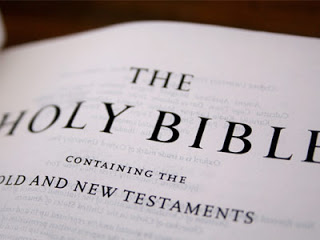Tags

The phrase “Bible believing Christians,” has always seemed either tautological or an attempt at oneupmanship. All Christians “believe” the Bible. But of course, those who self-identify with that description tend to use it to emphasise their orthodoxy. It is perhaps at that last constituency that Steve Chalke aimed when he wrote:
We were once told the Bible is very clear; the earth is flat, slavery is legitimate, leadership is male, divorce equals exclusion, the earth is only 6,000yrs old etc. Now those immature readings of scripture have been dumped. So why do some still use it to exclude LGBT+ people?
Twitter 14/04/23
But as many have pointed out, this is not quite the case. In the first place, the Bible nowhere states that the earth is flat, neither does it endorse slavery, and there are examples of female leadership in Scripture. In response, Chalke attempted to clarify that: “I’m talking about the immature understanding of the Bible by sections of the church.” In fact, what he is really talking about is the understanding of the Bible held at the time according to the conventional wisdom of the age. One can see why he might not have wanted to go that far, as what he is actually arguing is that we should update our understanding of the Bible to bring it in line with the conventional wisdom of our own time. That would, however, raise the question of why should be believe that contemporary understandings are any more valid that those he thinks were the product of “immature” readings? Is it really the case that we are wiser than our forbears? More knowledgeable, perhaps, but wiser?
Leviticus 18:22 is the “clobber” passage par excellence, the one clear example in the Old Testament: “Thou shalt not lie with mankind, as with womankind: it is abomination.” A recent article in the Journal of Theological Studies (to be found, alas, behind a pay wall unless you have access via your college or university) Jan Joosten suggests, after a close analysis of the Hebrew, that:
The blanket condemnation of male–male intercourse is a Fremdkörper [lit. “a foreign body” i.e. an addition] in the Hebrew Bible and the Ancient Near East. In contrast, the ‘protection’ of the union of man and wife as the paradigmatic form of human relationships is ubiquitous in the Hebrew Bible. The prohibition of adultery is reiterated many times and in many forms. On the new interpretation, Lev. 18:22 participates in this protection. One could say it comes to close a legal loophole. The law is formulated in a male-centred perspective: sex with a married woman is forbidden. But what about sex with a married man? This is not covered by the prohibition of adultery. But it is covered in our verses
JTS April 2020
As Joosten adds:
The law still stands at some distance from modern mentalities. The effect of Lev. 18:22, on the new reading, is to strengthen the value of the heterosexual couple as a paradigm for human relationships in general: the rights of a woman to her man’s sexuality are given precedence over occasional sexual encounters between men. Homosexual relations are relegated to the realm beyond marriage. This view of human sexuality falls short of contemporary demands for equal rights for same-sex relationships.
JTS April 2020
But of course, that would say nothing about male homosexual intercourse with a non-married man, and it has nothing to say at all about lesbian relationships. In short, a close and scholarly reading does not close down the argument in the way that “Bible-believing Christians,” think it does.
And that is before one gets to the context, where arguments rage over whether the ancient world knew close, loving, same sex relationships. But what is clear is that many legal systems regarded such relationships with disfavour, and used codes of law based on a particular reading of the dominant religious texts to justify it. We are back to the inescapable fact that we cannot interpret some parts of the Bible out of context. Modern progressives think the old readings were wrong; one suspects that the successors of the moderns will find some of their readings equally wrong.
That is why the teachings of the Church and of tradition matter. We can attempt to read these things by ourselves, and of course in very many areas there are consensus readings. But we should, perhaps, at least be aware that when we subject the Bible to whatever our needs in the culture war might be, we are doing just that – searching for a justification for a position we already hold.





You must be logged in to post a comment.